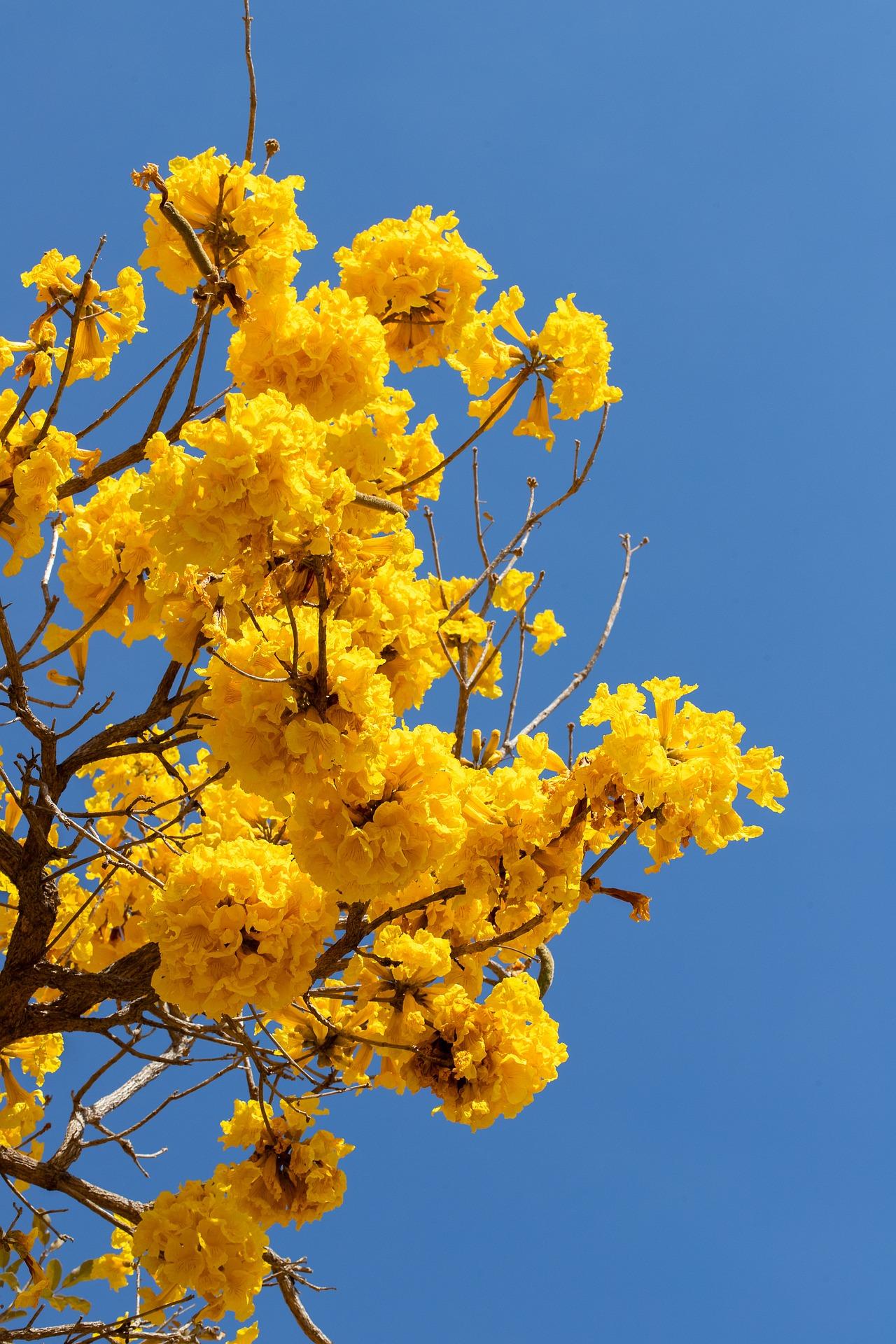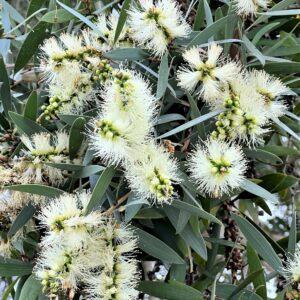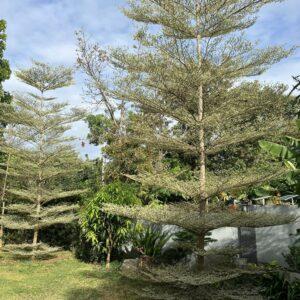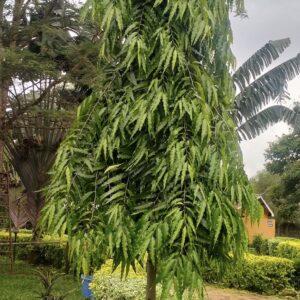Yellow Tabebuia Tree“🌳💛 The Trumpet of Gold
The Yellow Tabebuia (commonly Tabebuia aurea or Handroanthus chrysotrichus) is a deciduous flowering tree admired for its spectacular trumpet-shaped golden yellow flowers. It bursts into bloom in early spring or late winter when its bare branches are suddenly covered with vibrant yellow blossoms, making it one of the most eye-catching trees in tropical and subtropical regions.
Native to Central and South America, it has now found a cherished place in Pakistan, India, Southeast Asia, and warm regions worldwide for its ornamental value, resilience, and easy maintenance.
🌿 Botanical Details
Botanical names: Tabebuia aurea, Handroanthus chrysotrichus, Tabebuia caraiba
Common names: Yellow Tabebuia, Golden Trumpet Tree, Trumpet of Gold, Caribbean Trumpet Tree
Family: Bignoniaceae
Type: Deciduous flowering tree
Height: 15–25 feet (can grow up to 30 feet)
Canopy spread: 15–20 feet wide
Leaves: Palmate (like fingers), green to gray-green
Flowers: Clusters of bright golden-yellow trumpet-shaped flowers (2–3 inches long)
Blooming season: Late winter to early spring
Fruits: Long seedpods after flowering
☀️ Climate & Sunlight Needs
Sunlight:
Thrives in full sun (minimum 6–8 hours daily)
More sunlight results in abundant flowering
Climate:
Suitable for tropical and subtropical zones
Performs well in dry climates once established
USDA Zones: 9–11
Temperature range:
Ideal: 20°C to 35°C
Tolerates up to 40°C heat
Sensitive to prolonged frost
☀️ The tree remains leafless during bloom, creating a brilliant golden display with no foliage cover.
💧 Watering Needs
Young trees (first 1–2 years):
Water 2–3 times per week
Keep soil moist but not soggy
Mature trees:
Water once weekly in dry seasons
Drought-tolerant once well-established
⚠️ Avoid overwatering, especially in clay soils — it can cause root rot.
🌱 Soil Requirements
Soil type: Well-drained sandy, loamy, or rocky soil
Drainage: Crucial — roots hate waterlogging
pH preference: Neutral to slightly alkaline (6.5–7.5)
🌿 Can grow even in poor soils if drainage is good. Tolerates urban pollution and compacted soils well.
🌾 Fertilizer Routine
At planting time: Add compost or aged manure
Annual feeding:
Use balanced fertilizer (10-10-10) in early spring
Optional second feeding mid-summer for enhanced foliage
Micronutrients: Add magnesium and sulfur if leaves turn pale
🧪 Avoid over-fertilization; it encourages leaf growth at the expense of flowering.
✂️ Pruning & Maintenance
Pruning:
Prune in late summer or fall after flowering
Remove dead, crossing, or weak branches
Light shaping enhances appearance
Leaf and flower drop: Natural in blooming and dry seasons; clean regularly if planted near walkways
🌳 Its neat, rounded crown and sculptural trunk need minimal shaping once matured.
🌿 Propagation Methods
Seeds:
Collect pods when dry and brown
Seeds are light, papery, and easy to germinate
Germinate in 2–3 weeks in moist, warm soil
Cuttings:
Can be grown from semi-hardwood cuttings
Use rooting hormone for better success
🌱 Seeds offer quicker results; grow well in trays and transplant when 10–12 inches tall.
🐛 Pests and Diseases
Generally resistant to pests
Rare issues:
Aphids or whiteflies (on new growth)
Root rot if overwatered
🛡️ Use neem oil spray or mild soap water for soft-bodied pests.
🌼 Ornamental and Landscaping Use
Ideal for:
Avenue planting
Front yards or center islands
Public parks and gardens
Urban landscapes due to compact size
Garden companions: Looks beautiful with pink tabebuia, bougainvillea, tecoma, or plumbago
📸 Captures attention when leafless and in full bloom, creating a golden canopy that looks surreal.
✅ Conclusion
The Yellow Tabebuia Tree is a show-stopper, bringing vibrancy, beauty, and structure to any garden or street. It requires low maintenance, is drought-tolerant, and blooms spectacularly once a year, rewarding you with a golden explosion of flowers. Perfect for home gardens, cityscapes, or large containers, it’s a must-have if you’re looking to add color and charm to your landscape.”





Reviews
There are no reviews yet.